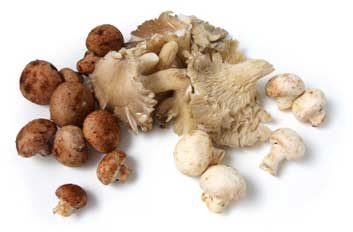
Mushrooms
A study published in Nutrition and Cancer in 2010 found that higher mushroom intake is associated with a lower risk of breast cancer among women who are premenopausal. Cremini, oyster and shiitake mushrooms, among others, contain antioxidants such as L-ergothioneine that may confer cancer protection.
Try this: Add sliced mushrooms to scrambled eggs, frittatas, stews, stir-fries and your ground meat for burgers and meatloaf.
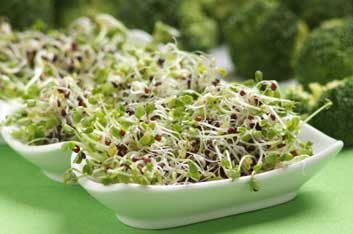
Broccoli sprouts
These peppery sprouts are high in sulforaphane, an antioxidant that University of Michigan scientists found may target and destroy cells that fuel tumour growth.
Try this: Add them to sandwiches, salads, soups and homemade pesto.
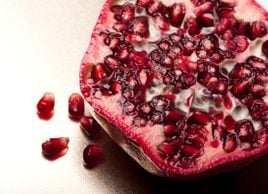
Pomegranates
The crunchy seeds of a pomegranate (also referred to as arils) are well endowed with ellagic acid, a potent antioxidant that may inhibit an enzyme that plays a role in breast cancer development, according to U.S. scientists from the City of Hope’s Beckman Research Institute. Pomegranates, a rich source of antioxidants, have also been linked to improved heart health. You can get the same antioxidants from pure pomegranate juice, but drink only one cup (250 mL) a day to keep sugar intake in check, or have half of a fruit.
Try this: Garnish cottage cheese, salads, oatmeal and pilafs with pomegranate seeds. Add the juice to smoothies and iced tea.
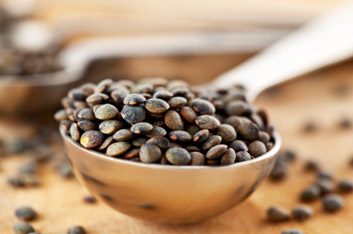
Lentils
A study published in The American Journal of Clinical Nutrition in 2009 analyzed the dietary patterns of more than 3,500 Asian-American women and found that a higher intake of legumes, which include lentils and beans, was associated with lower breast cancer risk. Though often overlooked, budget-friendly lentils are brimming with folate, fibre and a host of other nutrients that may help keep breast cancer at bay.
Try this: Try lentil burgers and tacos. Make hearty weeknight pasta with whole-grain penne, lentils, sun-dried tomatoes, chopped kale and diced feta cheese.
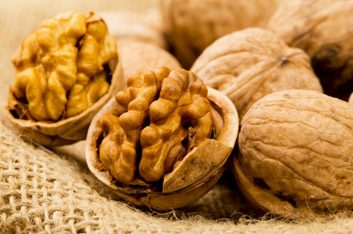
Walnuts
Preliminary data suggests that snacking on up to two ounces (60 g) of walnuts a day could halt the development of breast cancer tumours. Researchers from West Virginia’s Marshall University School of Medicine surmise that walnuts’ omega-3s, antioxidants and phytosterols may help slow the growth of cancerous cells.
Try this: Add walnuts to brownie or muffin recipes. Or toast them in a dry skillet and add to salads, pizza and cooked grains such as quinoa.
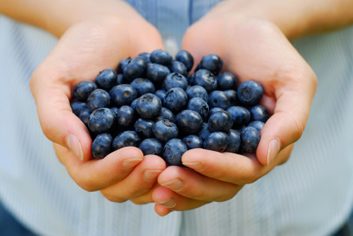
Blueberries
Research suggests that pterostilbene, a phytonutrient in blueberries, can halt the growth of breast cancer tumours by causing cancerous cells to self-destruct, a process called apoptosis. And frozen wild blueberries are just as antioxidant- and nutrient-packed as fresh.
Try this: Add blueberries to smoothies, oatmeal, yogurt and pancake batter.
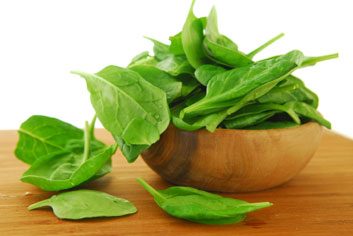
Spinach
Premenopausal women with the highest average intakes of dietary folate (a good source is spinach) had a 40 percent lower risk of breast cancer, according to a study in the American Journal of Epidemiology in 2011. The B vitamin is necessary for proper cell division, and stymies changes to DNA that may lead to breast cancer.
Try this: Use spinach to brighten up casseroles, quiches, pasta dishes, scrambled eggs and even smoothies.
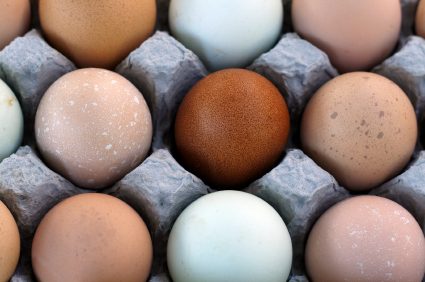
Eggs
Choline, an essential nutrient abundant in eggs, is associated with a 24 percent reduced risk of breast cancer, according to a U.S. study involving more than 3,000 women. This essential nutrient, found in the yolk, is necessary to ensure proper cell functioning. The U.S. Institute of Medicine says women should aim for 425 milligrams per day; there are 126 milligrams in a large egg. Other sources of choline include fish, poultry, pork, beef, broccoli and wheat germ.
Try this: Keep hard-boiled eggs in the office fridge and have one for an afternoon snack.
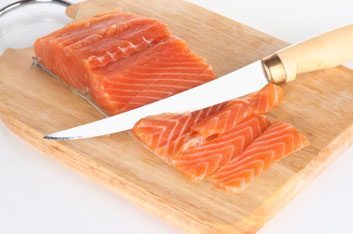
Salmon
Salmon is one of the few foods to contain vitamin D in significant amounts. Researchers at Toronto’s Mount Sinai Hospital determined that increased intakes of the “sunshine vitamin” were associated with a 24 percent reduction in the risk of developing breast cancer. Vitamin D may prevent cells from becoming cancerous. Also, eating fresh or canned salmon provides docosahexaenoic acid (DHA), a supercharged omega-3 fat that may kill off breast cancer cells and help stop the spread of the disease to other parts of the body.
Try this: Add canned salmon to salads or use instead of beef in burgers and meatloaf.
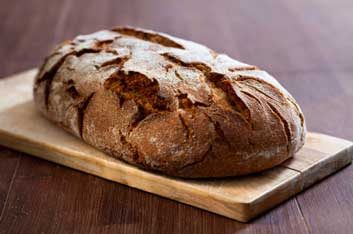
Rye bread
After reviewing the published research, Finnish scientists determined that consuming whole-grain rye can help slash breast cancer risk. A synergy between fibre, lignans, vitamins, minerals and the phytonutrient phytic acid make rye bread a breast cancer fighter. When buying, check the ingredient list to ensure that the first item is whole rye flour and not wheat flour.
Try this: For a nutrition-packed breakfast, toast a slice of rye bread and top with a poached egg, plus avocado and tomato slices.
Related:
• 10 ways to cut your cancer risk
• News: Walnuts reduce breast cancer growth
• Your Canadian superfoods list
